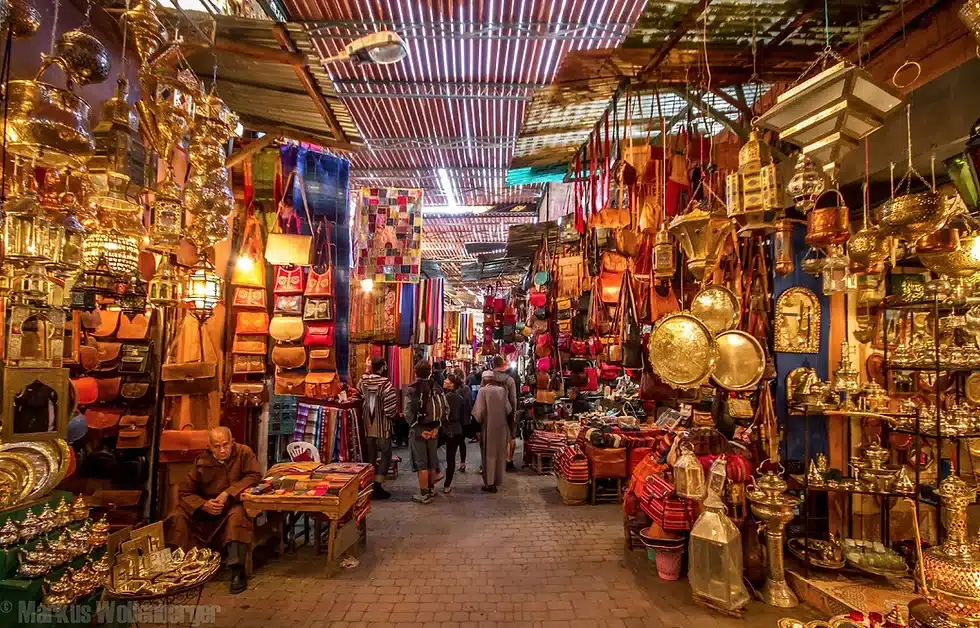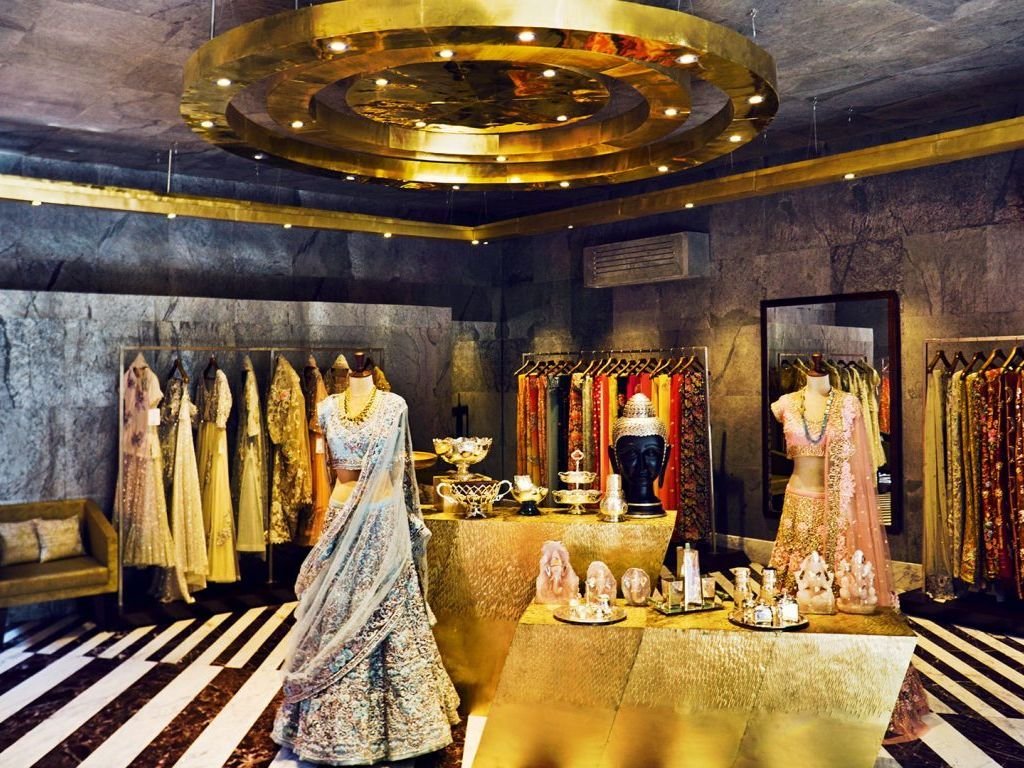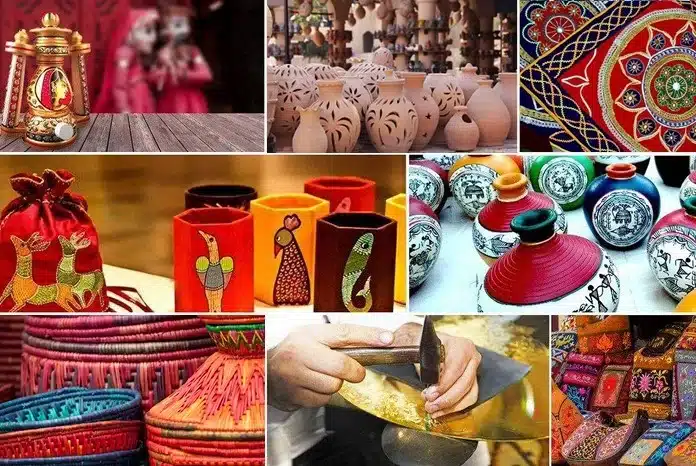India, with its rich culture, vibrant festivals, and deep-rooted traditions, is a shopper’s paradise during festive seasons. The joy of festive shopping goes beyond buying new clothes or gifts—it’s an experience that brings people together, invokes nostalgia, and fuels the excitement of celebrations. From Diwali and Eid to Christmas and Durga Puja, India’s festivals are celebrated with zeal, and shopping is at the heart of it all.
Key Takeaways:
Always look for unique, local products to make your celebrations more special and meaningful.
Festive shopping is an integral part of Indian culture and celebrations.
Trends like ethnic fusion wear, sustainable fashion, and personalized gifts are on the rise.
Planning ahead, setting a budget, and using online shopping platforms can make the process easier.
Popular shopping destinations in India include Sarojini Nagar, Colaba Causeway, and T Nagar.
| Category | Details |
|---|---|
| Festive Shopping Trends | |
| 1. Ethnic Fusion Wear | – Fusion of traditional and modern styles (e.g., saree gowns, lehenga skirts with contemporary blouses, and sharara pants). |
| 2. Sustainable Fashion | – Rise in eco-friendly fashion (e.g., organic fabrics, recycled jewelry, and handloom clothes). |
| 3. Personalized Gifts | – Personalized gifts like custom photo frames, engraved jewelry, and monogrammed accessories are becoming popular. |
| 4. Tech Gadgets as Gifts | – Increasing trend of gifting tech products like smartphones, smartwatches, and fitness trackers during festivals. |
| 5. Home Decor & Lighting | – Items like fairy lights, diyas, rangoli, and brass statues are key to creating a festive atmosphere. |
| Shopping Tips | |
| 1. Start Early | – Start shopping well in advance to avoid last-minute rush and stock shortages. |
| 2. Set a Budget | – Stick to a pre-decided budget to avoid overspending during the festive season. |
| 3. Embrace Online Shopping | – Use e-commerce platforms for convenience, variety, and discounts, especially for clothing, gifts, and home decor. |
| 4. Bargain in Street Markets | – Bargaining is an essential part of shopping in local street markets, especially for clothing, accessories, and home decor. |
| 5. Look for Unique, Local Products | – Focus on buying locally sourced, handcrafted, and traditional items to add uniqueness to your celebrations. |
| Must-Have Items | |
| 1. Traditional Attire | – Essential items include sarees, lehengas, kurtas, sherwanis, and salwar kameez. |
| 2. Home Decor | – Items such as fairy lights, diya lamps, rangoli powders, and brass statues are needed to decorate homes for festivals. |
| 3. Jewelry | – Gold, silver, and contemporary jewelry are popular during festive seasons. |
| 4. Food & Sweets | – Mithais like laddoos, barfis, kaju katli, dry fruits, and festive snacks. |
| 5. Personalized Gifts | – Monogrammed items, customized photo gifts, and bespoke home decor are perfect festive gifts. |
Understanding the Spirit of Festive Shopping in India
Festive shopping in India is a tradition that involves buying new clothes, gifts, decorations, and special foods to mark the occasion. Shopping is not just about acquiring items; it’s about embracing the essence of the celebration. Whether it’s Diwali, Eid, or any other festival, each occasion comes with its own set of shopping practices and must-have items.
1. A Tradition of New Beginnings:
In Indian culture, festivals mark new beginnings, prosperity, and the triumph of good over evil. One of the reasons shopping plays such an important role in the festivities is that buying new clothes, home decor, or gifts symbolizes a fresh start. For example, during Diwali (the festival of lights), it’s believed that purchasing new clothes or items is a way of inviting wealth and happiness into your home and life.
- New Clothes: During festivals like Diwali, Eid, and Pongal, people buy new clothes to mark the occasion. New clothes symbolize a clean slate and new opportunities. Women often wear sarees, lehengas, and salwar kameez, while men don traditional kurtas and sherwanis.
- Home Decor: Another tradition tied to festivals is buying decorative items like diyas (oil lamps), rangolis, and flowers. These items are used to adorn homes, temples, and streets, creating an atmosphere of joy and positivity.
2. The Joy of Gifting:
In India, gifting is a central part of almost every festival. The spirit of gifting during festivals is deeply connected to strengthening bonds with family, friends, and neighbors. It’s about expressing love, affection, and gratitude. People exchange a wide variety of gifts, such as clothes, jewelry, sweets, and even food items like dry fruits.

- Gifts for Loved Ones: It’s customary to give thoughtful and meaningful gifts to close family and friends. Gifts can range from luxurious jewelry and ethnic clothing to handmade home decor or customized items like photo frames and monogrammed towels.
- Sweets and Mithai: Festivals in India are also synonymous with delicious sweets and traditional foods. Mithais like ladoos, barfis, and pedas are exchanged as gifts, adding an extra layer of sweetness to the celebrations. People often shop at specialized sweet shops during festivals to purchase these delicacies.
3. The Experience of Shopping:
Festive shopping is not just about buying items—it’s about the experience of shopping itself. Markets and malls come alive with festive energy. The hustle and bustle of crowded streets, colorful decorations, the smell of incense and sweets, and the lively music create an atmosphere of excitement. People often shop together in groups, which makes the experience more enjoyable and adds to the social element of festivals.
- Bazaars and Street Markets: Indian street markets during festive seasons are vibrant, noisy, and full of life. Traditional markets like Chandni Chowk (Delhi), Colaba Causeway (Mumbai), Sarojini Nagar (Delhi), and MG Road (Bangalore) become hotspots for festive shopping. These markets are filled with vendors selling ethnic wear, decorative items, and local handicrafts.
- Malls and Online Shopping: In addition to traditional markets, shopping malls offer a more modern shopping experience with branded stores, food courts, and entertainment options. With the rise of e-commerce, online shopping platforms have also gained immense popularity, offering convenience and ease for festive shoppers.
4. Spiritual and Religious Significance:
In India, many festivals have a spiritual and religious significance, and shopping during these occasions often reflects the devotion and reverence people feel for their culture and beliefs. Buying new clothes, idols, or religious items for prayer represents respect for the gods and is a way to seek blessings.
- Religious Items: For festivals like Durga Puja, Diwali, and Navratri, people buy religious items such as idols, puja thalis (plates for offerings), incense, prayer bells, and traditional puja kits. These items are used to perform rituals, pray, and welcome deities into their homes.
- Offering to Gods: During certain festivals, gifting items to temples or performing charitable acts is an essential part of the shopping spirit. People often buy flowers, fruits, sweets, and other offerings to present at temples.
5. Community and Togetherness:
Festive shopping brings communities together. It’s not just about the individual act of purchasing things—it’s a time for family gatherings, community events, and social interactions. People often shop together, visit markets as groups, or even plan shopping trips with extended family. Shopping becomes a shared experience that strengthens relationships.
- Family Shopping: During major festivals like Diwali, families often go shopping together to buy clothes, gifts, and sweets. This shared experience makes the occasion more memorable and meaningful.
- Community Feasts and Gatherings: Festivals also involve communal feasts, where shopping for food, drinks, and essentials becomes a way to share the spirit of giving and hospitality. Whether it’s a community Eid feast or a Christmas dinner, food plays a significant role in bringing people together.
6. Economic Impact and Boost:
Festive shopping is a driving force behind economic activity in India. During festivals, both local markets and larger retail sectors witness an uptick in sales. Businesses—ranging from small street vendors to large retail chains—benefit greatly from the shopping sprees that happen during the season.
- Local Artisans and Craftsmen: Many people prefer buying handmade or locally sourced items, which supports small-scale artisans and craftsmen. Traditional jewelry, clothing, and home decor often come from local workshops, and this form of shopping supports the cultural heritage of the country.
- Retail Industry: Large retail chains and e-commerce platforms offer special discounts, exclusive festive collections, and limited-time offers, contributing to the economy by attracting a larger number of shoppers.
7. Emotional and Social Connection:
Festive shopping is intrinsically linked to emotions and the joy of celebrating together. Whether it’s the happiness of finding the perfect gift or the thrill of selecting new clothes for a special occasion, the emotional connection to shopping is significant. It strengthens the ties between people and their traditions, culture, and family.
- Memories: Shopping for gifts and clothes often becomes a tradition in itself. The act of buying something special for loved ones is not just about the material value of the items but about the memories created. Over the years, the memories of shopping trips become cherished recollections.
- Social Status: Festivals also provide an opportunity for people to showcase their social status, especially through the purchase of high-end gifts or luxurious clothing. However, for many, the real value lies in the sentiment behind the gift rather than its monetary worth.
Trends in Festive Shopping in India

As with any shopping season, festive shopping has its own set of trends that change each year. These trends reflect not only global fashion but also the fusion of tradition and modernity that India is known for.
2.1. Ethnic Fusion Wear
One of the biggest trends in festive shopping is the shift toward ethnic fusion wear. Traditional Indian attire, like sarees, lehenga cholis, kurta-pajamas, and salwar kameez, has now evolved into more fusion-style clothing that blends Western and Indian elements.
- Anarkali Suits and Lehengas: These timeless pieces are now being paired with jackets, blouses, and unique embroidery techniques, making them even more versatile.
- Sharara and Palazzo Pants: These trendy styles are replacing the traditional salwar, offering a contemporary twist on ethnic wear.
- Saree Gowns: Combining the elegance of a saree with the structure of a gown, this fusion wear is quickly gaining popularity.
2.2. Sustainable Fashion
As global awareness about sustainability grows, so does the trend toward eco-friendly fashion. During festive shopping, many people are turning to sustainable and locally sourced clothing. This trend includes using organic fabrics, upcycled materials, and eco-conscious accessories.
- Handloom and Khadi Fabrics: Made from natural fibers, these fabrics are both traditional and sustainable.
- Recycled Jewelry: Many brands are offering jewelry made from recycled materials, offering an eco-friendly option for shoppers.
2.3. Personalized Gifts
Personalized gifts are another significant trend during festive seasons. From engraved jewelry to customized home decor and personalized photo frames, gifts that carry a personal touch add an emotional layer to the festival celebrations.
- Monogrammed Accessories: Personalized handbags, wallets, and scarves are popular gifts for friends and family.
- Custom Art: A framed portrait, custom-made jewelry, or bespoke home decor is highly appreciated.
2.4. Tech Gadgets as Gifts
Technology is making its mark in the festive shopping arena. Many people are gifting smartphones, smartwatches, laptops, headphones, and fitness trackers. With advancements in technology, gifting gadgets during festivals has become a modern tradition.
2.5. Home Decor and Lighting
Festivals like Diwali, Eid, and Christmas are incomplete without special home decor items and lighting. From LED lights to traditional diya lamps, decorative candles, and stylish wall hangings, home decor items dominate the festive shopping space.
- Fairy Lights and Diyas: Used to decorate homes and create a festive atmosphere.
- Traditional Brass and Silver Items: Statues of gods and goddesses, traditional brass plates, and silver items are popular during festivals.
Tips for Successful Festive Shopping
Festive shopping can be both exciting and overwhelming. With a bit of planning and foresight, you can ensure a smooth and successful shopping experience. Here are some tips to help you make the most of your festive shopping:
3.1. Start Early
Festive shopping can be chaotic, especially closer to the festival. To avoid last-minute stress, it’s always advisable to start early. Make a list of the items you need—whether it’s clothes, gifts, decor, or food—and gradually tick them off over a few weeks.
3.2. Set a Budget
Festive shopping can often result in overspending, so it’s essential to set a budget for yourself. Track your spending, prioritize your needs, and resist impulse purchases. Many festivals also come with huge sales, so you might find discounted deals for the items you were planning to buy.

3.3. Embrace Online Shopping
While traditional markets have their charm, online shopping can save time and effort, especially if you’re unable to visit physical stores. Many online platforms offer huge discounts, exclusive collections, and doorstep delivery, making shopping more convenient than ever.
3.4. Bargain in Street Markets
If you’re shopping in street markets like Sarojini Nagar, Colaba Causeway, or Chandni Chowk, don’t be afraid to haggle. Bargaining is an integral part of shopping in India’s markets, and you can often get a good deal if you negotiate politely.
3.5. Look for Unique, Local Products
Festivals are a great time to shop for unique and locally made products. Whether it’s handwoven textiles, handcrafted jewelry, or locally sourced food items, supporting local artisans can give your festive celebrations a unique touch and help preserve traditional crafts.
Must-Have Items for Festive Shopping
Here’s a list of must-have items that should be part of your festive shopping list:
4.1. Traditional Attire
- Sarees: Whether it’s a Kanchipuram silk saree for a wedding or a cotton saree for daily wear, sarees are a must-have.
- Lehengas: Perfect for weddings and grand occasions, lehengas come in a variety of designs.
- Kurtas and Sherwanis: Traditional clothing for men during festivals.
4.2. Home Decor
- Fairy Lights and Diyas: Essential for decorating your home, especially during Diwali.
- Rangoli Materials: Colorful powders, flowers, and stencils for creating beautiful rangolis.
- Brass and Wooden Statues: Gifting or placing idols of gods and goddesses during festivals is a tradition.

4.3. Jewelry
- Gold and Silver Jewelry: Traditional jewelry is always a part of festive shopping.
- Contemporary Designs: A mix of traditional and modern designs, especially for gifts.
4.4. Food Items
- Sweets: Mithais like laddoos, barfis, kaju katli, and peda are indispensable during festivals.
- Dry Fruits: A healthy and tasty option for gifting and consumption.
Also Read : A Taste Of India: The Top 10 Food Markets To Explore
Conclusion
Festive shopping in India is more than just an activity; it’s an experience that adds excitement, color, and joy to the celebrations. Whether you’re shopping for clothes, gifts, home decor, or food, the festivals in India are an excellent time to indulge in the country’s diverse and vibrant fashion, culture, and traditions.
By understanding the latest trends, following the shopping tips mentioned, and ensuring you have the right must-have items, your festive shopping experience can be stress-free and enjoyable. Remember, festive shopping is not just about acquiring things; it’s about celebrating love, togetherness, and the essence of the occasion.
FAQs
What are the best places to shop for festive clothes in India?
Popular markets include Sarojini Nagar (Delhi), Colaba Causeway (Mumbai), and T Nagar (Chennai) for traditional clothes. For high-end clothing, Banjara Hills (Hyderabad) and MG Road (Bangalore) are great options.
How can I find the best discounts for festive shopping?
Look for festive sales both online and in physical stores. Many websites and malls offer exclusive deals and discounts during the festive season.
Is it better to shop online or in physical stores during festivals?
Both have their advantages. Online shopping offers convenience and discounts, while physical stores provide a chance to feel the fabrics and try on clothes.
What type of gifts should I buy during festivals?
Popular gifts include personalized items, sweets, traditional jewelry, home decor, and gadgets.
When should I start shopping for festivals in India?
It’s best to start a few weeks before the festival to avoid crowds and last-minute rush.
Are there sustainable options available for festive shopping?
Yes, many markets offer sustainable clothing, accessories, and eco-friendly home decor.
What are some must-have items for Diwali shopping?
Diwali shopping typically includes sarees, lehenga cholis, fairy lights, diyas, sweets, and gifts for loved ones.




